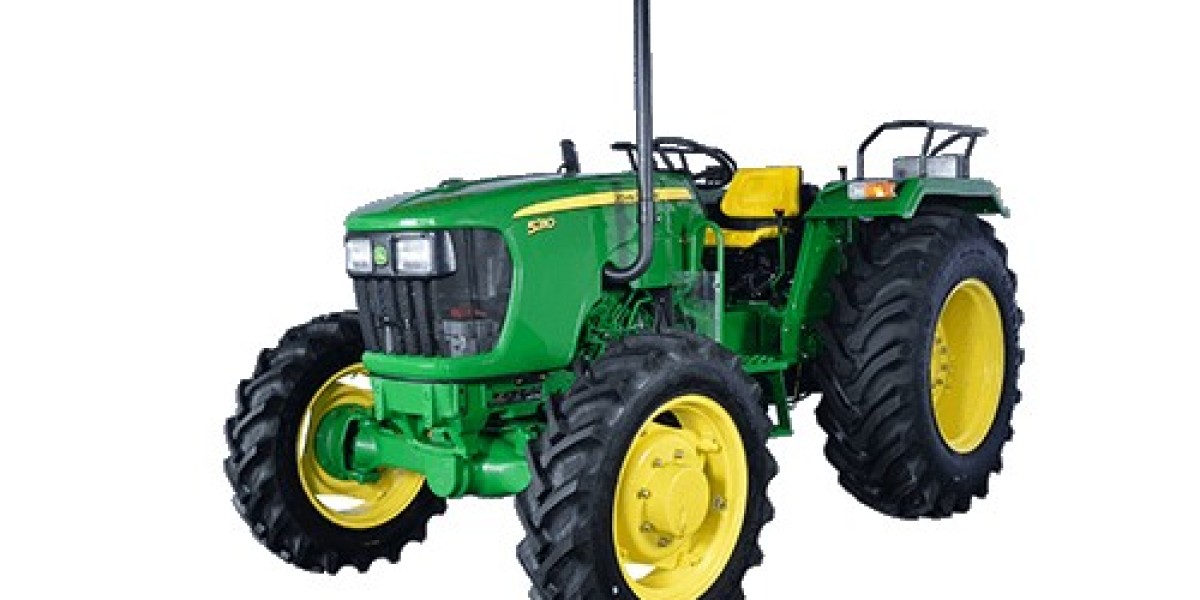In the world of agriculture, few names resonate as strongly as John Deere. For over 180 years, John Deere has been synonymous with innovation, quality, and reliability in the farming industry. One of their most iconic products is the John Deere tractor, a machine that has revolutionized the way farmers work the land. In this blog, we'll explore the remarkable history and impact of John Deere tractors.
A Legacy of Innovation
John Deere, the company's founder, was a blacksmith and inventor. In 1837, he built his first steel plow, a groundbreaking innovation that transformed the farming landscape. The durable and efficient design of the plow made tilling the land faster and easier, significantly increasing agricultural productivity. This early success set the stage for John Deere's legacy of innovation.
By the early 20th century, John Deere had expanded its product line to include a variety of agricultural machinery. However, it was in 1918 that the company introduced its first tractor, the Waterloo Boy Model N. This marked the beginning of a new era in farming, as tractors would replace traditional horse-drawn equipment, offering increased power and efficiency to farmers.
The Evolution of John Deere Tractors
Over the years, John Deere has continued to refine and improve its tractor technology. The iconic green and yellow tractors have become a symbol of reliability and performance in the farming industry. From the early two-cylinder models to the advanced four-wheel-drive tractors of today, John Deere has consistently pushed the boundaries of what's possible in agricultural machinery.
One of the most significant advancements in John Deere tractors was the introduction of the diesel engine in the 1940s. This innovation provided more power and efficiency, enabling farmers to tackle larger and more demanding tasks. As the years went by, tractors became more comfortable for the operator, with ergonomic designs, air-conditioned cabs, and cutting-edge technology.
Modern Features and Technology
Today's John Deere tractors are a marvel of modern engineering. They come equipped with a wide range of features and technology designed to enhance productivity and reduce the environmental impact of farming. One standout feature is the GPS-guided auto-steering system. This technology allows farmers to precisely control their tractors, resulting in more efficient planting, harvesting, and cultivating. It also minimizes overlap, reducing fuel consumption and environmental impact.
John Deere tractor is known for their exceptional power and versatility. They can handle a variety of tasks, from plowing and planting to mowing and baling. The company offers a diverse range of models to suit the specific needs of farmers, from small family-owned operations to large commercial enterprises.
Environmental Sustainability
In recent years, sustainability has become a key focus in agriculture. John Deere is dedicated to addressing this concern by developing tractors that are more environmentally friendly. The company's tractors are designed to be fuel-efficient and to minimize emissions, helping farmers reduce their carbon footprint.
Furthermore, John Deere is actively involved in the development of alternative power sources, such as electric and hybrid tractors. These innovations have the potential to revolutionize the industry by providing eco-friendly alternatives to traditional diesel-powered tractors.
The Impact on Farming
The influence of John Deere tractors on the world of farming cannot be overstated. These machines have played a crucial role in making agriculture more efficient and productive. They've allowed farmers to increase their yield while reducing the physical strain of labor-intensive tasks.
With the help of John Deere tractors, the world has seen a transformation in farming practices. They've made it possible to cultivate larger areas of land, resulting in increased food production to feed our growing global population. This, in turn, has contributed to the economic growth and development of rural communities worldwide.
Conclusion
John Deere tractors have left an indelible mark on the farming industry. From their humble beginnings with the steel plow to their cutting-edge, environmentally conscious models of today, John Deere tractors have been a driving force behind agricultural innovation and productivity. They've empowered farmers to work more efficiently, sustainably, and profitably. As the agricultural landscape continues to evolve, John Deere tractors will undoubtedly play a vital role in shaping the future of farming.



